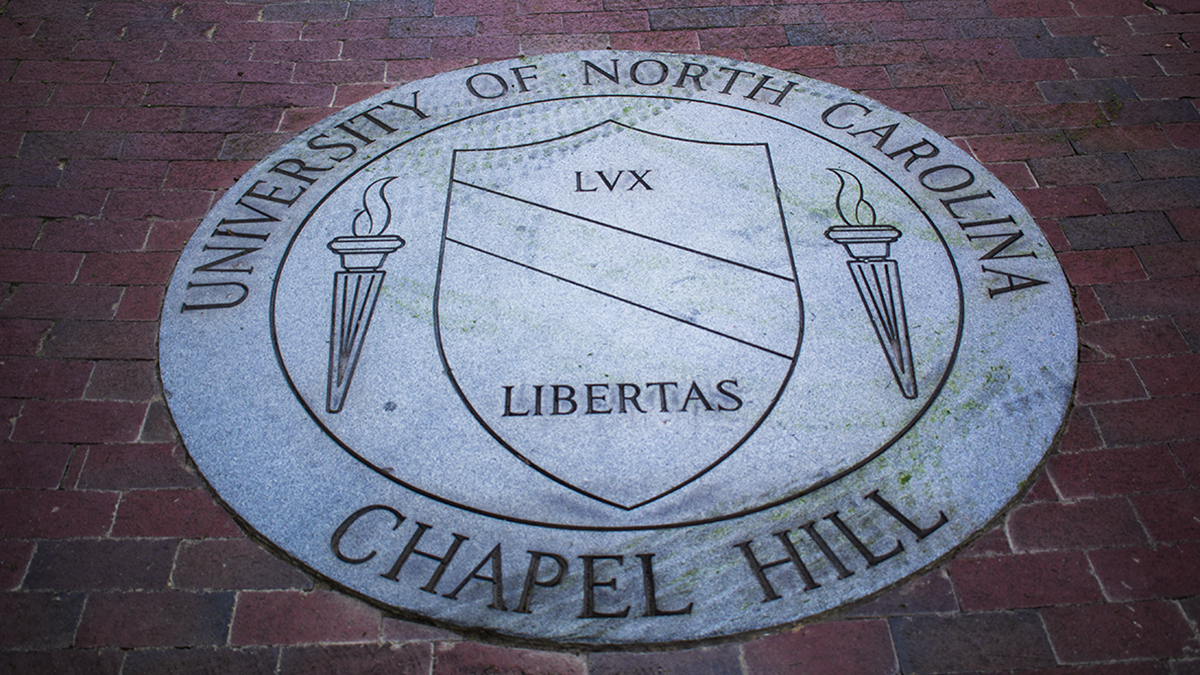
Danita Mason-Hogans has a family history steeped in the UNC and Chapel Hill community and she describes herself as a seventh-generation Tar Heel.
“My mother worked at the university for about 30 years as an undergraduate admissions counselor,” she says. “My grandmother worked with the Kuralt family as the Eminent Bookstore. My father and grandfather worked on UNC campus, and my father actually started working [there] when he was six years old.”
Mason-Hogans, who works for the Center for Documentary Studies at Duke University, was also asked to serve on UNC’s Commission on History, Race and a Way Forward thanks to her community ties. Chancellor Kevin Guskiewicz established the group to get student, faculty and community recommendations on how university leadership can improve upon its checkered past of racism.
Mason-Hogans says last week’s news of the 16-year moratorium on building names being lifted is a credit to that commission advocating for such a change. But even before the measure had been taken, she publicly shared a proposal she will make at the commission’s next meeting that could take further steps to address inequities seen in the larger Chapel Hill community.
Mason-Hogans shared a “call to action” on her social media pages asking for UNC to fully fund an educational enrichment program targeted for descendents of those who helped build the university in the 18th century. In it, she said the pre-k through 12th grade students should then receive full financial aid from the university to help them attend UNC.
A graduate of the local school system herself, Mason-Hogans points to the lack of university support helping marginalized students within the local community as an indictment on its efforts to fight racial injustice.
“The Chapel Hill-Carrboro City Schools system has the second-largest achievement gap between black and white students in the country,” she says. “There are a lot of metrics that have gone into this achievement disparity, but they’re all rooted in history. Black education at UNC is very much tied to, and mirrors in a lot of ways, black education in Orange County.”
When schools were still segregated in Chapel Hill, Lincoln High School was where African American students went. Mason-Hogans says when schools were integrated in 1966, however, more than 75 percent of the black educators and staff who worked at Lincoln High were not integrated into the school system like their students. She points to that as setting the foundation for continued systemic racism in CHCCS schools that put Black students at a disadvantage.
“We have never had educational parity with white students,” says Mason-Hogans, “and that’s the truth. That’s something that needs to be fixed. I’m committed to continue shouting from the rooftops that our children deserve an equal education for as long as I need to.”
With this proposed program, however, Mason-Hogans says more Black students would have resources and funding to help improve their education. In her outline, she suggests using the $2.5 million UNC gave to a pro-Confederate group in a now-nullified settlement to kickstart the program’s funding. She also says the community can tap into its local resources of historians and archives to determine the genealogy of students who could participate.
“We have these names because our ancestors built the university,” describes Mason-Hogans. “We have these names because some of our ancestors were sold and rented to fund the university. What I plan to recommend is a way to address the parallel to address the achievement gap between Chapel Hill-Carrboro City Schools and UNC’s foundation in enslavement and perpetuating this gap for much of [the gap’s] existence.
While the recent protests against racial injustice have made her proud, says Mason-Hogans, it reminds her of demonstrations Black students held decades ago over similar fights for fair treatment and recognition. She says if the commission and university accept her proposal of this education enrichment program, it could be a step toward making tangible change, both for acknowledging UNC’s past and for the larger Chapel Hill community.
“All of the memories I have of black people and UNC have been rooted in struggle,” says Mason-Hogans. “It occurred to me that this wonderful opportunity I have to talk about race in this way was right in front of me.”
The UNC Commission on History, Race and a Way Forward’s next meeting is slated for July 10.
Chapelboro.com does not charge subscription fees. You can support local journalism and our mission to serve the community. Contribute today – every single dollar matters.
"local" - Google News
June 22, 2020 at 04:13PM
https://ift.tt/2Nl0kZu
Member of UNC Commission to Propose Educational Enrichment Program to Address Local Racial Inequity - Chapelboro.com
"local" - Google News
https://ift.tt/2WoMCc3
https://ift.tt/2KVQLik
Bagikan Berita Ini














0 Response to "Member of UNC Commission to Propose Educational Enrichment Program to Address Local Racial Inequity - Chapelboro.com"
Post a Comment